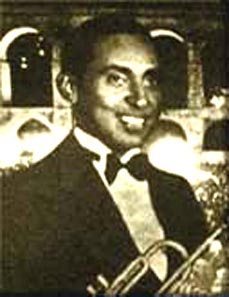
Syukhtun Editions


Bonfiglio de Oliveira , instrumentalist and composer, was born in Guaratinguetá, Brazil on September 27, 1894 , and died in Rio de Janeiro on May 16, 1940 . He learned the rudiments of music with his father , a bassist in the band Mafra Guaratinguetá. After completing trumpet his trumpet studies, he began performing as a trumpeter and bass player in several theaters and local cinemas, including the Symphony Orchestra of the Municipal Theatre, conducted by Francisco Braga. In 1917 , alongside Pixinguinha participated Group Caxangá .In 1919 , he traveled through Italy , France and Spain, and Portugal with the Company Jardel Jércolis. In October 1931 he recorded in Victor " Flamengo " dedicated to the Rio de Janeiro neighborhood where he resided . Bonfiglio de Oliveira was considered one of the greatest horn players of his time , alongside Pixinguinha and Louis Armstrong.
Source : Encyclopedia of Brazilian musicBonfiglio de Oliveira, a remarkable trumpeter, is considered the best of his time. He also excelled as a composer, with several marchas-rancho, the march "Carolina" (a hit of the Carnival of 1934, written with Hervé Cordovil), the waltzes "Glória" (with lyrics by Branca M. Coelho and recorded in 1931 by Gastão Formenti) and "Mar de Espanha," the song "Frô do Ipê" (lyrics by Nelson Abreu), and the choro "Flamengo" (recorded in 1931 by de Oliveira on trumpet). De Oliveira was the trumpeter for Pixinguinha's Grupo da Guarda Velha in 1932, continuing in the group when it became Diabos do Céu. He was also diretor de harmonia of the famous rancho Ameno Resedá. De Oliveira toured through Italy, France, Spain, and Portugal.
He first learned musical concepts from his father, a double-bassist. He played kick drums with Banda Beneficiente, soon joining Banda Mafra as trumpeter. His first song was written when he was at school, the military march "Padre Frederico Gióia." He then formed a band that performed in upstate São Paulo. In one of those performances, de Oliveira was heard by conductor Lafaiete Silva, who hired him for the orchestra that played at the cinema Ouvidor. He completed his musical studies and worked extensively as a double-bassist and trumpeter in several orchestras and groups, including the Orquestra Sinfônica do Teatro Municipal, conducted by Francisco Braga. In 1917, with Pixinguinha, he participated in Grupo de Caxangá. In the '30s he performed on Programa Casé, both as a soloist and a member of the studio orchestra.
– Alvaro Neder


Home | Books | Sheet music for guitar | Visual arts | Biography | Syukhtun
Copyright © 2002 Syukhtun EditionsTM, All Rights Reserved
syukhtun.net domain name is trade marked SM , All Rights Reserved